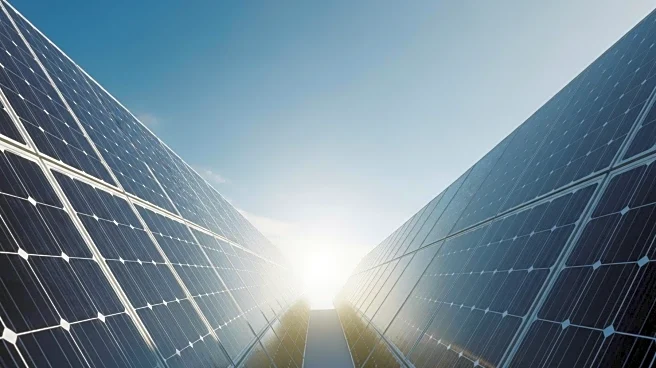What is the story about?
What's Happening?
The solar industry in the United States is experiencing a trustworthiness gap, primarily due to high costs and inefficiencies. According to CleanTechnica, the loss of federal subsidies may help eliminate unscrupulous solar installers by exposing inefficiencies in the system, such as slow permitting, expensive labor, and opaque pricing. The Solar Energy Industries Association reports that soft costs account for 65% of the cost of a new home solar system in the U.S., significantly higher than in other countries. These costs include installation, permitting, sales, marketing, and financing charges, which have led to consumer disenchantment with the solar industry.
Why It's Important?
The high costs and inefficiencies in the solar industry could hinder the adoption of solar energy in the U.S., affecting the country's renewable energy goals. Consumers are turned off by the overall cost framework, which includes significant expenditures on marketing and sales. This lack of transparency and high costs could slow down the transition to solar energy, impacting efforts to reduce carbon emissions and promote sustainable energy solutions. The potential reduction or elimination of federal subsidies could further exacerbate these issues, making it crucial for the industry to address these challenges to regain consumer trust.
Beyond the Headlines
The solar industry's trust issues highlight broader challenges in the renewable energy sector, including the need for more transparent pricing and efficient processes. Addressing these issues could lead to a more competitive and trustworthy market, encouraging more consumers to adopt solar energy. The industry may need to focus on reducing soft costs and improving transparency to build consumer confidence and support the transition to renewable energy.
















